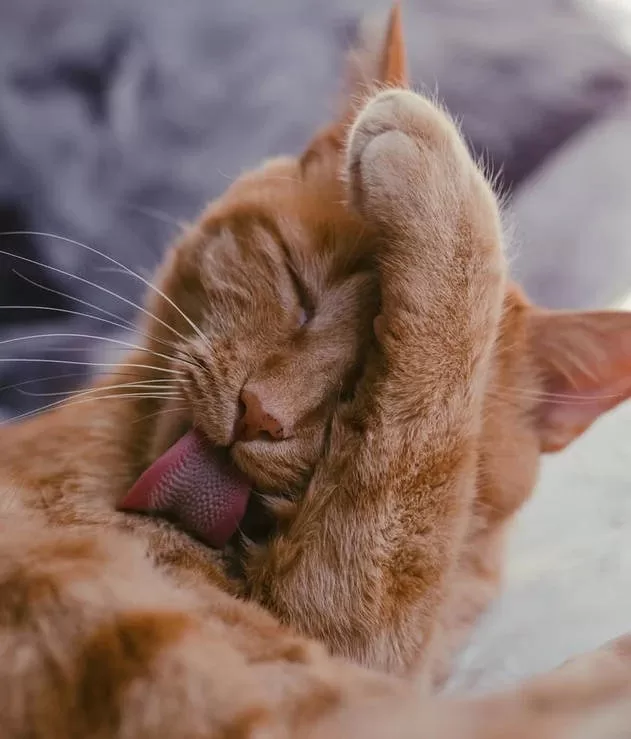Cats are known to be extremely careful about their personal hygiene. Spending most of their time cleaning themselves, they use their rough tongue to comb their fur , remove dirt and parasites. Additionally, cats are extremely finicky about their litter box , preferring a clean, quiet place . Oral hygiene is also crucial, as cats can suffer from dental problems . Understanding feline behavior and providing a clean, sanitized environment is essential to your cat’s overall well-being. Furthermore, it is important to use safe productsfor cleaning and taking care when carrying out tasks such as cutting nails, bathing and cleaning urine. Keeping your cat’s health up to date is essential, and neutering can help prevent unwanted behaviors, such as spraying pee to mark territory. In short, through careful observation and appropriate care , the connection between the owner and the cat can be strengthened, providing a rewarding and loving experience.
Main points to highlight:
- Cat grooming is an important aspect of their daily routine;
- Cats use their rough tongue to comb their fur , remove dirt and parasites;
- Cleaning the litter box is essential for feline hygiene;
- Cats’ oral hygiene is crucial to avoid dental problems ;
- Understanding feline behavior is critical to providing appropriate care ;
The Science Behind Cat Cleaning
Cats’ rough tongues play an important role in their grooming routine. This unique characteristic allows them to efficiently clean their coat, removing dirt, loose hair and even parasites. The rough texture of the feline tongue is the result of small conical papillae that have hooks at the tip, similar to bristles. These hooks help remove waste and allow cats to keep their coat clean and healthy.
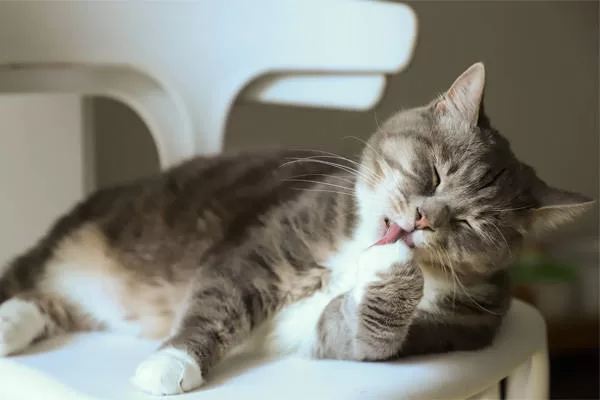
Additionally, cats’ rough tongue also plays a role in stimulating blood circulation and removing dead skin cells. This process of “combing” their coat is a way to not only keep themselves clean, but also keep their skin healthy.
Cats are extremely hygienic animals and spend an average of 30% of their time cleaning themselves. This behavior is essential for your health, as it helps prevent infections and skin diseases. In addition, frequent cleaning of the coat also helps regulate the feline’s body temperature.
| Benefits of cleaning cats: |
|---|
| Dirt removal: Cats’ rough tongue removes dirt, debris and loose hair, keeping the coat clean. |
| Parasite removal: Cat tongue hooks help remove fleas, ticks and other external parasites that may be present in the coat. |
| Stimulation of blood circulation: The “combing” action of the tongue helps to stimulate blood circulation in the skin, promoting the health and shine of the coat. |
| Preventing skin diseases: Frequent cleaning of cats helps prevent infections and skin problems, keeping them healthy. |
Cats’ rough tongue: a wonder of nature
The rough texture of cats’ tongues is truly a wonder of nature. This unique adaptation allows these animals to clean efficiently and independently. By understanding the science behind cat grooming and the importance of rough tongues, we can appreciate this fascinating feline self-care even more .
The importance of cleaning the litter box
Cleaning the litter box is essential for feline well-being and hygiene. Cats are extremely hygienic animals and have the instinct to bury their natural waste. Therefore, a clean and adequate litter box is essential to meet your cat’s behavioral and health needs.

Cats prefer a clean, quiet place to do their business. Therefore, it is important to keep the litter box in a suitable location, away from busy areas of the house and away from other pets. Additionally, the litter box should be cleaned regularly to ensure your cat’s health and comfort.
A recommendation is to clean the litter box daily, removing solid and agglomerated waste. Furthermore, the sand must be changed regularly to avoid the accumulation of unpleasant odors. There are different types of litter available on the market, so it is important to choose one that is suitable for your cat and easy to clean.
| Litter Box Cleaning Chores | Frequency |
|---|---|
| Remove solid waste | Daily |
| Remove clumps | Daily |
| Change the sand | Every 1-2 weeks |
Additionally, it is important to observe your cat’s behavior in relation to the litter box. Sudden changes in litter box usage pattern may indicate a health problem or stress. If your cat starts to avoid the litter box or has difficulty urinating or defecating, it is recommended to seek advice from a veterinarian.
The importance of cleaning the litter box
Cleaning the litter box is essential to ensure feline well-being and hygiene. Maintaining a clean and adequate litter box is essential to meeting your cat’s behavioral and health needs. Follow cleaning recommendations regularly and observe your cat’s behavior to ensure she is healthy and comfortable.
Cat oral hygiene
Oral hygiene is crucial to the health and well-being of cats. Just like us humans, cats can also suffer from dental problems , such as tartar, gingivitis and bad breath. Therefore, it is essential to take care of your feline’s oral health to ensure a long and healthy life.
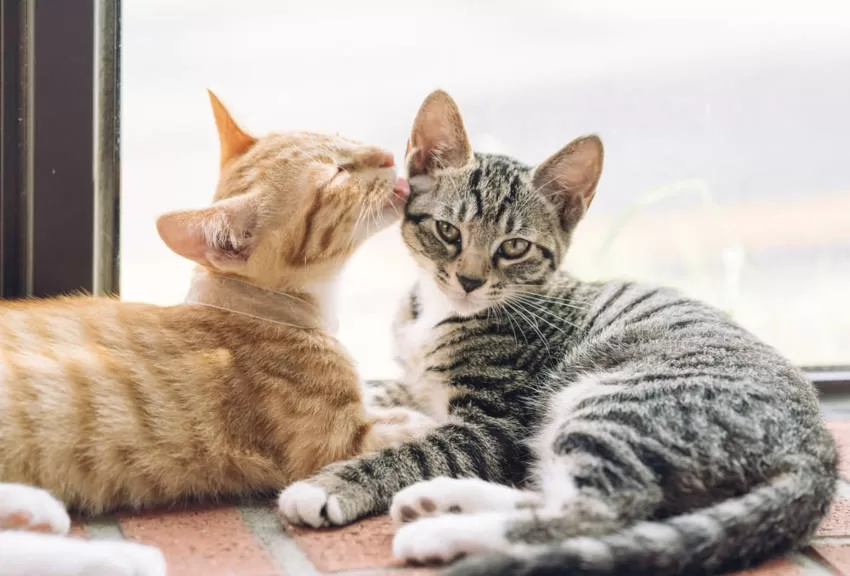
One of the ways cats maintain oral hygiene is by chewing hard foods, such as dry kibble. In addition, their rough tongue also helps clean teeth, gently removing bacterial plaque.
To help keep your cat’s oral hygiene up to date, you can introduce regular tooth brushing. There are special toothbrushes for cats and toothpastes with pleasant flavors for them. However, it’s important to gradually get your cat used to this routine so that he feels comfortable during the process.
| Benefits of oral hygiene: |
|---|
| Prevention of dental problems |
| Reduction of bad breath |
| Prevention of periodontal diseases |
Remember that your cat’s oral health is directly related to his overall health. Therefore, do not neglect this important part of caring for your feline. Always consult a veterinarian for specific guidance and tips on the best way to care for your cat’s oral health.
Understanding Feline Behavior
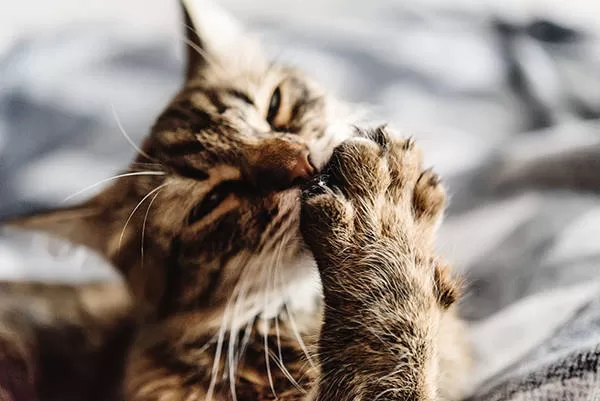
Understanding feline behavior is essential to ensuring your cat’s well-being. Cats have natural behaviors that are essential to their health and happiness. One of these behaviors is the cleaning ritual, in which they dedicate a large part of their time to cleaning themselves. Using their rough tongue, cats comb their fur , removing dirt and parasites.
Additionally, cats are extremely finicky about their litter box. They prefer a clean and quiet place to carry out their needs. Therefore, keeping your cat’s litter box clean and well sanitized is essential to ensure their comfort and promote good feline health .
Oral hygiene also plays a fundamental role in the health of cats. Dental problems can be common and negatively affect your cat’s well-being. Therefore, it is important to regularly brush your cat’s teeth and have regular dental checkups with your veterinarian.
The importance of a clean environment
In addition to physical care, providing a clean and sanitized environment for your cat is also crucial. Cats are very sensitive animals to the environment around them. They prefer clean, organized spaces where they can feel safe, comfortable and relaxed.
Dirt and clutter can cause stress in cats, leading to unwanted behaviors such as scratching furniture or urinating outside the litter box. Therefore, keeping your home clean and organized can help prevent these problems and promote your cat’s overall well-being.
| Feline behavior | Proper care | Clean environment |
|---|---|---|
| Observe and understand your cat’s natural behavior. | Carry out regular hygiene, brushing the coat and teeth. | Keep the house clean and organized, avoiding dirt and clutter. |
| Provide a peaceful environment for the litter box. | Use safe cleaning products and be careful with tasks such as cutting nails and bathing . | Provide clean, organized spaces for your cat to feel safe and comfortable. |
In short, understanding feline behavior, providing adequate care and a clean environment are essential elements in ensuring your cat’s well-being. By closely observing your cat and providing what it needs, you can strengthen the connection between you and provide a rewarding, loving experience.
Safe products for cleaning cats.
Choosing safe products is essential to ensure adequate hygiene for cats. Felines are extremely sensitive to chemical substances, so it is important to avoid using products that can cause skin irritation or allergies. When selecting cleaning products for your cat, it is recommended to opt for those that are specifically formulated for feline use or that are gentle enough not to cause harm.
A safe and effective product for cleaning cats is cat shampoo, which is designed to meet the needs of felines’ sensitive skin. These shampoos are formulated with gentle ingredients and no harsh chemicals, making them ideal for cleaning your cat’s coat without causing irritation.
Additionally, it’s important to remember that some household cleaning products, such as disinfectants and cleaning chemicals, can be toxic to cats. Therefore, when cleaning at home, be sure to use safe products that are not harmful to your feline. If you are in doubt about the safety of a product, consult your veterinarian for specific recommendations for your cat.
Additional care for adequate hygiene
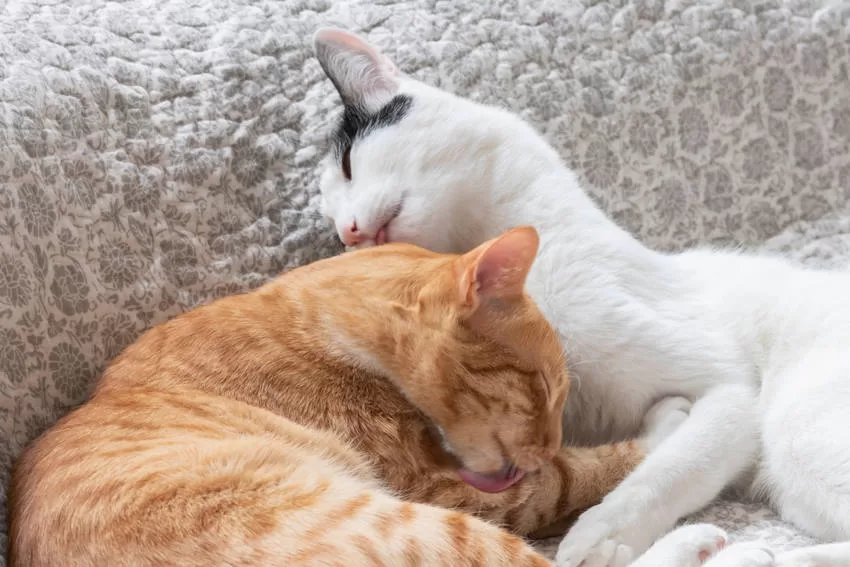
In addition to choosing safe products, there are other precautions to consider for proper cat hygiene. It is recommended to regularly brush your cat’s coat with a suitable brush to remove loose hair and prevent the formation of hairballs. It is also essential to ensure that your cat’s litter box is regularly cleaned, providing a clean and peaceful environment to do its business.
Try to maintain a clean and sanitized environment for your cat, regularly cleaning the areas where he spends the most time, such as his resting place and eating areas. In addition, it is essential to maintain your cat’s oral hygiene, brushing its teeth regularly and taking it to the veterinarian for periodic dental checkups.
| Recommended products for cleaning cats | Benefits |
|---|---|
| Shampoo suitable for cats | Cleans the coat gently and without causing irritation |
| Brush suitable for cats | Removes loose hair and prevents the formation of hairballs |
| Safe cleaning products for home use | They are non-toxic to cats and provide safe cleaning |
Choosing safe products and paying attention to additional care are essential to ensure adequate hygiene for cats. By providing a clean and safe environment, you contribute to your feline’s well-being and overall health, strengthening the connection between you and providing a rewarding and loving experience.
Special care: cutting nails, bathing and cleaning urine
Some special care is needed when cutting a cat’s nails, bathing or cleaning up urine. These tasks can be challenging and require patience and skill to ensure the feline’s well-being.
When it comes to cutting your cat’s nails, it’s important to be careful not to cut too close to the pink part, known as the blade. One option is to use cat-specific nail clippers, which have a suitable design to avoid accidents. If you are not comfortable doing this yourself, it is recommended that you seek help from a professional.
As for bathing, it is important to remember that most cats clean themselves and do not need frequent baths. However, in certain situations, such as when the cat is visibly dirty or if it has a skin condition that requires treatment, a bath may be necessary. It is essential to use specific products for cats, which are gentle and do not irritate sensitive skin.
Cleaning up a cat’s urine can be a challenging task, especially if the cat is marking its territory. It is important to use a specific product for cleaning cat urine, as they have a characteristic odor that can attract the cat to the same place again. Additionally, it is important to clean the area thoroughly to prevent odor from penetrating the carpet or sofa.
When carrying out this special care , it is essential to remember to reward the cat with affection and praise to help strengthen the connection between owner and feline. Remember to provide a clean, safe environment for your cat and seek professional advice whenever necessary.
The importance of castration for feline behavior
Neutering is an important measure to control unwanted feline behavior. In addition to preventing unwanted reproduction, neutering also has a significant impact on cat behavior, helping to reduce aggressive behavior, territorial marking and the desire to escape.
When a cat is not neutered, the production of sex hormones can lead to problematic behaviors. Unneutered male cats, for example, are more likely to mark their territory with urine, which can be extremely unpleasant in the home. Additionally, these cats can also exhibit aggressive behaviors, especially in the presence of other cats.
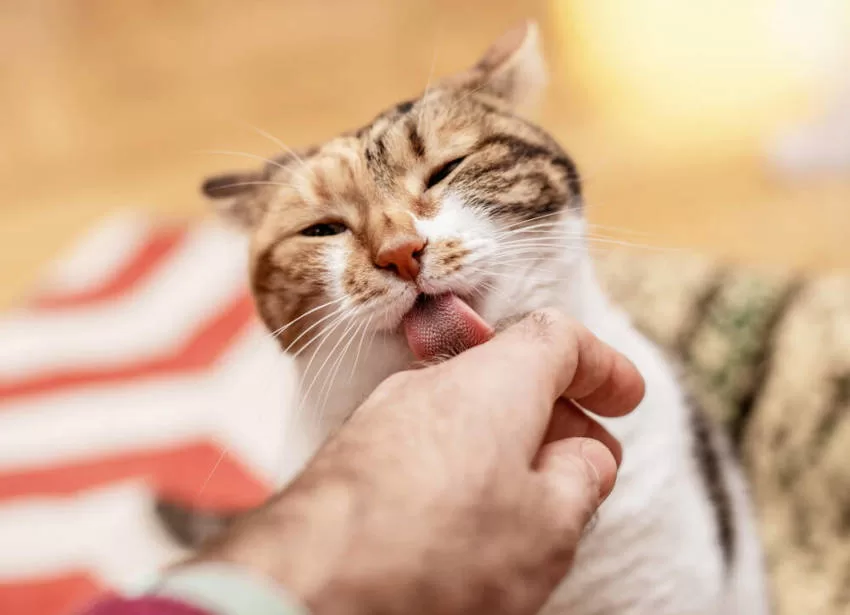
Neutering can also help reduce a cat’s need to run away in search of sexual partners, which can expose them to risks such as traffic accidents or confrontations with other animals. By eliminating or reducing these behaviors, neutering helps to improve the quality of life of cats and provide a more harmonious environment for them and their owners.
It is important to mention that castration must be carried out by a qualified veterinary professional. Before surgery, the cat will undergo a health assessment to ensure it is fit for the procedure. After surgery, it is necessary to follow the veterinarian’s recommendations regarding post-operative care, such as the use of medication and restriction of the cat’s activity.
| Benefits of neutering for feline behavior: |
|---|
| Reduced marking of territory with urine |
| Decrease in aggressive behaviors |
| Less desire to run away in search of sexual partners |
| Promotes a more harmonious environment for the cat and its owner |
Neutering is an important preventative measure to maintain the health and well-being of cats, as well as helping to control unwanted behaviors. If you are considering neutering your cat, consult a veterinarian for more information and guidance on the procedure.
Strengthening the connection between owner and cat
Providing adequate care strengthens the connection between owner and cat , creating a relationship full of reward and love. Cleaning is an important aspect of cats’ routine, as they spend a large part of their time cleaning themselves. They use their rough tongue to comb their fur, remove dirt and parasites, demonstrating how much they care for themselves to stay healthy.
Additionally, cats are extremely finicky about their litter box. They prefer a clean and quiet place to carry out their needs, ensuring their comfort and well-being. Therefore, keeping the litter box clean daily is essential for your cat to feel safe and satisfied.
Oral hygiene is also crucial. Just like humans, cats can suffer from dental problems such as tartar and gingivitis. Brushing your cat’s teeth regularly and providing foods suitable for dental health can prevent these problems and promote feline well-being .
To better understand your cat and strengthen the connection between you, it is important to observe its behavior and provide a clean, sanitized environment. Cats are sensitive animals and appreciate an environment free from dirt and strong odors. Therefore, keeping the house clean and offering a comfortable space for the cat to rest and play is essential.
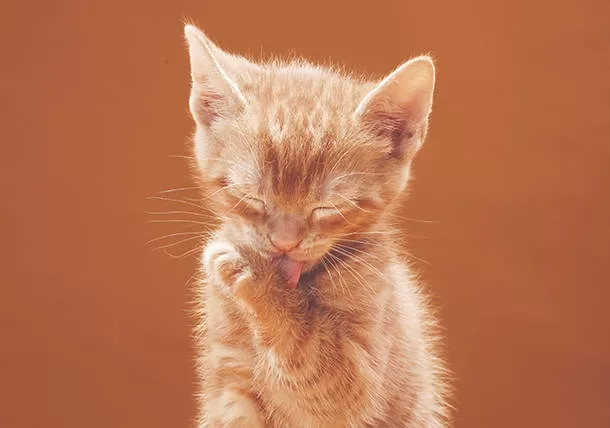
Furthermore, when carrying out tasks such as cutting nails, bathing and cleaning urine, it is essential to be careful not to cause stress to the cat. Using appropriate products and carrying out these tasks with patience and love will help strengthen trust and the bond between you.
Neutering also plays an important role in feline behavior. Unneutered cats tend to mark their territory through urine, which can be an unwanted behavior. Opting for neutering will help control this behavior and promote a calmer, more harmonious environment between you and your cat.
In short, by providing adequate care, such as hygiene, a clean and healthy environment, and neutering, you will be contributing to your cat’s overall well-being, strengthening the connection between owner and cat and creating a relationship full of reward and love.
FAQ
Q: Why is cleanliness important for cats?
A: Cleaning is an important aspect of a cat’s routine, as they spend a lot of their time grooming themselves. This helps remove dirt, parasites, and keeps the coat healthy and tangle-free.
Q: How do cats clean themselves?
A: Cats use their rough tongue to comb their fur, remove dirt and parasites. Cats’ tongues have small papillae that act as brushes to clean their hair.
Q: Why is litter box cleaning important?
A: Cats are extremely finicky about their litter box. They prefer a clean and quiet place to do their business, and regular cleaning of the litter box is essential to prevent the accumulation of odors and maintain the feline’s health.
Q: How should I take care of my cat’s oral hygiene?
A: Oral hygiene is crucial to the health of cats, as they can suffer from dental problems such as tartar and gingivitis. It is important to brush your cat’s teeth regularly with a toothbrush and toothpaste specifically for pets, as well as offering food and toys that help clean their teeth.
Q: How important is it to understand feline behavior?
A: Understanding feline behavior is essential to providing proper care and a clean, safe environment for your cat. This will help the owner to identify possible health problems, specific needs and strengthen the bond with the feline.
Q: What cleaning products are safe for cats?
A: It is important to use specific cleaning products for cats, avoiding the use of toxic substances that could cause harm to the feline’s health. Always check product instructions and choose safe, non-toxic cleaning solutions to ensure proper sanitation.
Q: What special precautions should I take when cutting my cat’s nails, bathing and cleaning up urine?
A: When cutting your cat’s nails, it is important to be careful not to cut the sensitive part. When bathing, use specific products for cats and be careful not to stress the feline. When cleaning urine, use enzymatic products to eliminate the odor and prevent the cat from urinating in the same place again.
Q: Why is neutering important for feline behavior?
A: Neutering is important to prevent unwanted behaviors, such as marking territory through urine. Furthermore, castration contributes to the reduction of health problems, such as tumors and uterine infections in females.
Q: How can I strengthen the connection between me and my cat?
A: Careful observation of the cat’s behavior and providing appropriate care, such as providing a clean environment, playing and offering affection, help strengthen the connection between the owner and the cat. This provides a rewarding and love-filled experience between both partners.
Source Links
- https://purina.com.br/purina/gatinhos/como-limpar-e-higienizar-seu-gatinho
- http://gatinhobranco.com/10-dicas-de-limpeza-para-quem-tem-gatos/
- https://venturavet.com.br/2023/08/25/entendê-o-comportamento-felino/

